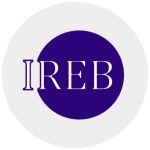Issue 3 of the RE Magazine will see the introdution of a new section, the Research Section, with a focus on research.
The reasons are obvious: Research requires a solid base of experience – e.g. yours as our readers. Readers are interested in questions such as what’s coming next in RE, what are the trends, what are the results in research that we must not miss?
So, let’s put things together:
Researchers need the cooperation and participation of RE practitioners, like you, as readers of this Magazine. In a later issue researchers publish their findings, sharing the results of their surveys with you. The Magazine simply brings these two interest groups together – for the benefit of professional RE!
Learn how the RE Magazine can be a catalyst in this case. This article already gives you the opportunity to participate in the first survey supported by the RE Magazine right now.
Some members of the RE community, researchers — be they from academia or from industry — want to do research about real-world RE problems or to answer questions that practicing requirement engineers working in the trenches in industry have. However, in order to do such research, generally in the form of surveys (also known as questionnaires) or experiments, the researchers need the cooperation and participation of practicing professional requirement engineers, such as the readers of this Requirements Engineering Magazine. This participation can include answering surveys or being subjects in experiments that address these real-world problems or questions.
The purpose of this new Research Section of the RE Magazine is to help researchers anywhere secure the cooperation and participation of the practicing requirement engineers that read the RE Magazine. A researcher wanting to solicit participation in a survey or experiment will be permitted to publish in this Section an advertisement for participation in a survey or experiment. In exchange for the right to publish the advertisement in these pages, the researcher must commit to publishing first, in these pages as soon as possible thereafter, an article reporting the results of the survey or experiment.
To start the ball rolling, this issue of the RE Magazine carries a request for participating in a survey by Luisa Mich of the University of Trento in Italy and by Victoria Sakhnini and Daniel Berry of the University of Waterloo in Canada.
We, the Editor of the RE Magazine, encourage you to participate and look forward to seeing the results published in this magazine at a future date, and here is the announced first survey:
Your help is needed:
Please share your experiences with us by filling in a questionnaire about requirements elicitation!
https://docs.google.com/spreadsheet/viewform?fromEmail=true&formkey=dFI2UWx0MWJuRUdvQ1JNZnh1NFN0SGc6MQ
Thanks!
About the Questionnaire
We invite practicing systems engineers and analysts to help us inform management about what boosts creativity among groups of analysts as they elicit requirements. Creativity is important in requirements engineering for discovering and inventing requirements!We also ask you to pass this message on to any other practicing business or requirements analysts that you may know so that they know about this survey too and might participate.
If you decide to volunteer, you will be asked to complete an online survey that should not require more than 20 minutes of your time. Survey questions focus on various issues about creativity in requirements elicitation.
If you wish to participate, please visit the survey link at https://docs.google.com/spreadsheet/viewform?fromEmail=true&formkey=dFI2UWx0MWJuRUdvQ1JNZnh1NFN0SGc6MQ
About Your Anonymity
Participation in this study is voluntary. You may decline to answer any questions that you do not wish to answer, and you can withdraw your participation at any time by not submitting your responses. There are no known or anticipated risks from participating in this study.Any information that you provide will be confidential. All of the data will be summarized and no individual will be identifiable from these summarized results.
This survey uses Google Docs, whose computer servers are located in the USA. Consequently, USA authorities, under provisions of the USA Patriot Act, may access this survey data. If you prefer not to submit your data through Google Docs, please contact one of the researchers so you can participate using an alternative method (such as through an e-mailed or paper-based questionnaire). The alternate method may decrease anonymity, but we assure you that confidentiality will be maintained.
The data, with no personal identifiers, collected from this study will be maintained on a password-protected computer database in restricted access areas of both of our universities. As well, the data will be electronically archived after the completion of the study and maintained for two years and then erased.
About a Drawing for a REFSQ Proceedings
If you participate in the questionnaire and wish to be entered into a drawing to win a copy of the proceedings of the latest (or some available earlier) occurrence of the REFSQ (Requirements Engineering: Foundation for Software Quality) conference, please write your e-mail address in the box provided at the end of the questionnaire. This e-mail address will be removed from the collected data and will be saved only in the file of e-mail addresses entered in the random drawing.If you have questions, please contact any of us.
Sincerely,
Luisa Mich | luisa.mich@unitn.it
Victoria Sakhnini | vsakhnini@gmail.com
Daniel Berry | dberry@uwaterloo.ca






































































































































